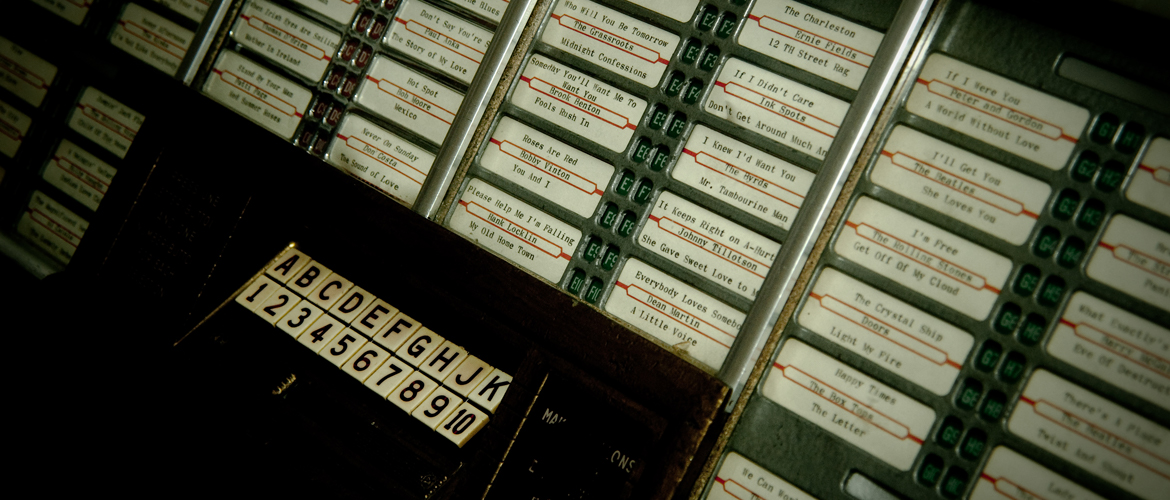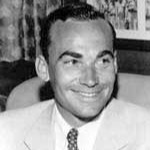 If Todd Storz wanted to show his appreciation to the men most responsible for his success, he’d need a time machine to reach them. It’s not clear whether either man would have accepted Storz’s thanks graciously.
If Todd Storz wanted to show his appreciation to the men most responsible for his success, he’d need a time machine to reach them. It’s not clear whether either man would have accepted Storz’s thanks graciously.
Louis Glass and William S. Arnold, the first to take Edison’s phonograph and turn it into a nickel-in-the-slot music machine, are credited with inventing the jukebox in 1890.
Ironically, it was that invention that gave Storz the ability to do what parents in the 1930s couldn’t accomplish.
Rid the world of jukeboxes.
Storz succeeded by creating Top 40 radio, the sound of music in the late 1950s and 60s that delivered the day’s most popular songs faster than you could fumble through your pocket for a quarter. And with more frequency than your budget could tolerate.
Storz chose to start rocking the country in New Orleans, and the story of how Storz’s WTIX became America’s first Top 40 radio station also answers the question you should have been asking yourself since you started reading this story—if not for the last 60 years.
From their earliest locations in bars and other sordid places, jukeboxes called to the adventurous with the siren songs of the time—jazz and swing music. Parents lectured their children on the evils of jukebox music so, naturally, by the 40s and 50s jukeboxes thrived and spread their reach to malt shops, soda fountains, and other youth-friendly locales.
This is where we catch up with Storz.
Legend has it that he got the idea for Top 40 radio in an Omaha, Nebraska restaurant—although sometimes the restaurant was a soda fountain when it wasn’t a diner, bar, or army canteen.
Storz supposedly struck solid gold while sitting in one of these places observing how people dropped plenty of coins into the jukebox only to play a handful of songs over and over.
In his book The Birth of Top 40 Radio: The Storz Stations’ Revolution of the 1950s and 1960s, Richard W. Fatherly offers a different view. Fatherly quotes Bud Armstrong, who worked for Storz at WHB in Kansas City, as insisting none of that ever happened:
…any fool who ever went to a bar knew that some records were played more often than others. There was no great inspiration in that. We knew that going in. The myth that this was some kind of revelation is not true; never was true.
Either way, the jukebox certainly contributed to Storz’s decision to use his chain of radio stations to give the public the repetition it wanted.
Storz chose to start rocking the country in New Orleans, and the story of how his WTIX became America’s first Top 40 radio station also answers the question you should have been asking yourself since you started reading this story—if not for the last 60 years.
Why the top 40? Why not the top 12, or the top 98.6?
Storz didn’t know how many songs to repeat each day any more than jukebox distributors knew which songs would be popular. What he did know was that another New Orleans station, WDSU, set aside two hours daily to play the day’s most popular 20 songs.
Competitive businessman that he was, Storz started a show on his station that began an hour before, and ended an hour after, WDSU’s. The show was twice as long so Storz played twice as many songs.
And an icon was born.
That Storz stitched together Top 40 from jukeboxes, a competing radio station, and a common synonym for “popular,” probably explains why his birthday isn’t a national holiday.
So what, exactly, is all the fuss about?
Storz’s lasting contribution was refining the way the music was presented. He pushed aside the paternal-sounding disk jockeys who so accurately reproduced the Miltown fog enveloping the Eisenhower years. He replaced them with DJs whose exaggerated eccentricities spilled forth with the energy of a roller derby whip, and whose patter was motivated by three P’s: promotion, promotion, promotion.
Within a few years, the Top 40 format was a bigger hit than the songs it played.
The leading practitioners, with names like Cousin Brucie Morrow; Big Dan Ingram; Harv Moore, the Guy Next Door; Larry Lujak; Emperor Gene Nelson; Barry Richards, the Boss With the Hot Sauce; and The Real Don Steele offered the understanding baby boomers didn’t get from their parents. The DJs not only played “their” music, they provided advice on such weighty issues as life, love, and choosing the right pimple cream.
Top 40 had a nearly 30-year run. It was toppled, ironically, by the same quality that Storz observed made little difference in jukeboxes—a multitude of choices. FM radio, with its choice of niche music formats, fractured the monolithic Top 40 audience.
Top 40 hasn’t repeated itself since.
Start your Sunday with a laugh. Read the Sunday Funnies, fresh humor from The Out Of My Mind Blog. Subscribe now and you'll never miss a post.
Todd Storz was born in 1924 in Omaha, Nebraska, but left the Midwest to attend prep school at Choate in Wallingford, Connecticut. He returned to Nebraska to attend the University of Nebraska, then served in the Army Signal Corps during World War II. Storz’s romance with commercial radio began shortly after his Army discharge when he went to work at KWBW in Hutchinson, Kansas. Storz worked his way back to his native Omaha with a job as an announcer at KBON. He moved to KFAB, where he was an account executive, before forming the Mid-Continent Broadcasting Company with his father, in 1949. Storz died of a cerebral hemorrhage in 1964. He was 39 years old.
Mind Doodle…
In the 1960s, WABC radio’s Dan Ingram received a letter that eloquently demonstrated the relationship between Top 40 disk jockeys and their listeners. “Long before there was such a term as a battered child,” a listener wrote, “I was one. “One day as I was standing on the edge of the Brooklyn Bridge with my only possession, my transistor radio, you made me laugh and I didn’t jump.”

Jay, I’m so glad you brought this to my attention; I thoroughly enjoyed reading it! (I especially loved reading about the simple competitive propeller Storz had in New Orleans, giving way to the birth of Top 40.)
I’m sorry Storz died at such a tender age. There’s no telling how many other people whose lives might’ve been saved literally and figuratively, if he’d lived a full life.
Thank you again for letting me know about this article, and your blog!
(See you ’round the FB funny page. 😉
Hi Leslie…
Thanks so much for the comments. Top 40 burned out a lot of talented disc jockeys before their time, mostly from smoking and drug/alcohol addition. It wasn’t uncommon to read the industry obits and find these guys (and they were guys at the time) dying in their early 60s. It’s ironic one of the creators of Top 40 also died young.
— jay
Your commentaries just keep getting better and better. They are must-read stuff, and they are first things I open in my in-box.
Hi Dave…
Always nice to hear from you, especially when you write something like the above.
I’ve wanted to write the Storz/Top 40 story for months. I don’t know how many Baby Boomers know the size of the cultural revolution Storz started.
But what always brings a smile to my face is the story behind the number 40. A competitive move with little planning behind it. Can you imagine today? It would take two years, what with all the testing, to get the name “Top 40” approved by management, let alone get it on the air.
— jay